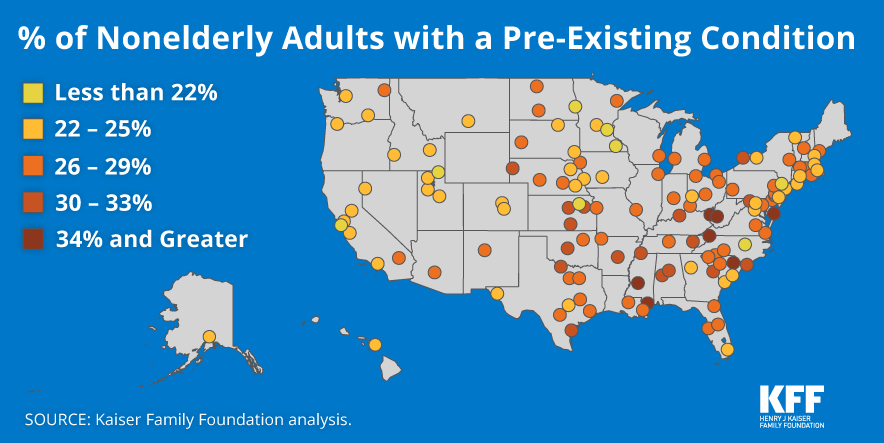
Pre-existing conditions impact Americans north, south, east and west, the Kaiser Family Foundation maps. But those maladies aren’t evenly distributed across the U.S.: the highest incidences of people with pre-existing conditions are generally dotted in the eastern half of the U.S., in diverse metropolitan areas.
This study looks at non-elderly adults, people between 18 and 64 years of age. That is, working-age U.S. adults who would be prospects for private health insurance coverage, whether through employers or on the individual insurance market.
A striking aspect of this map is that one metro that has a higher rate of people with pre-existing conditions can co-exist in a state with another town whose population is much healthier, just a short drive apart. The report points to Florence and Charleston, in South Carolina: the former town has a relatively high incidence of people with pre-existing conditions at 34%, while the latter records a lower proportion at 24%.
Similarly, the Kingsport Tennessee MSA records a 41% of people with pre-existing conditions, versus Nashville at 27%.
Thus we public health folk say that a person’s ZIP code can be more important than her genetic code. Where we live may pump clean water, have safer schools and access to healthier food at fair prices, staff more primary care physicians and access points like ambulatory health centers, and have a majority of people who shun smoking cigarettes.
Or not. These social determinants of health are hyper-local phenomenon: what happens in Charleston stays in Charleston and doesn’t always or directly impact the health-lives of folks in Florence.
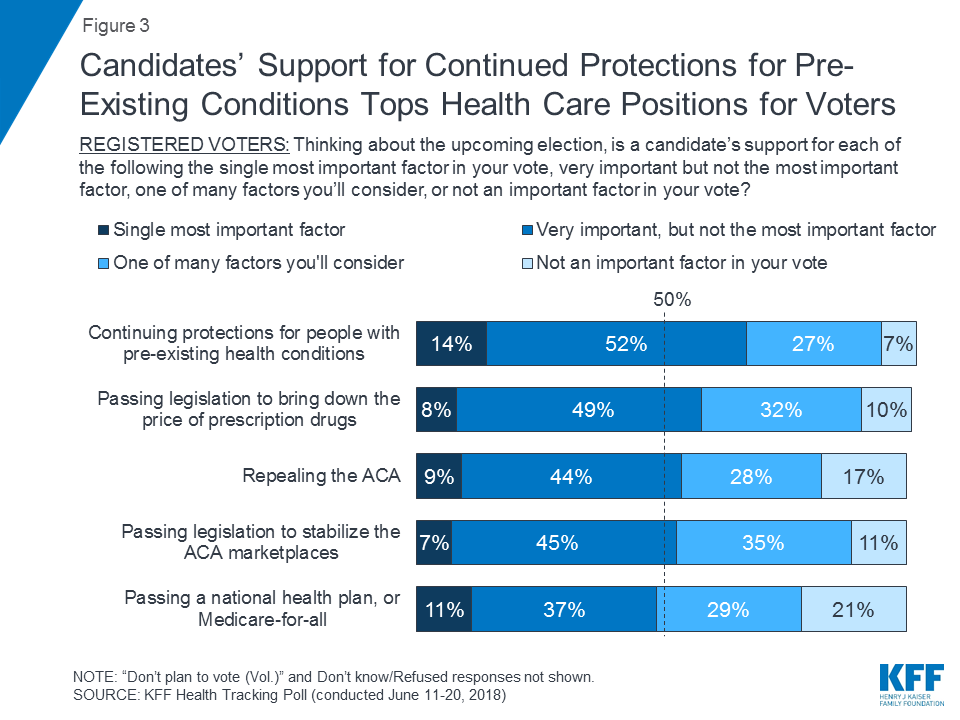 Health Populi’s Hot Points: Pre-existing conditions are a big deal to Americans these days: among registered voters, ensuring that health plans cover pre-existing conditions is the most important health care issue on Americans’ minds, the June 2018 Kaiser Family Foundation Health Tracking Poll found.
Health Populi’s Hot Points: Pre-existing conditions are a big deal to Americans these days: among registered voters, ensuring that health plans cover pre-existing conditions is the most important health care issue on Americans’ minds, the June 2018 Kaiser Family Foundation Health Tracking Poll found.
The second chart (called Figure 3 in the KFF poll report) illustrates this political fact. Protecting pre-existing conditions in health insurance outranks lowering the price of prescription drugs and repealing the ACA, voters say.
On a party-identification basis, this sentiment is shared across a majority of Democrats, Independents and Republicans, the third chart illustrates.
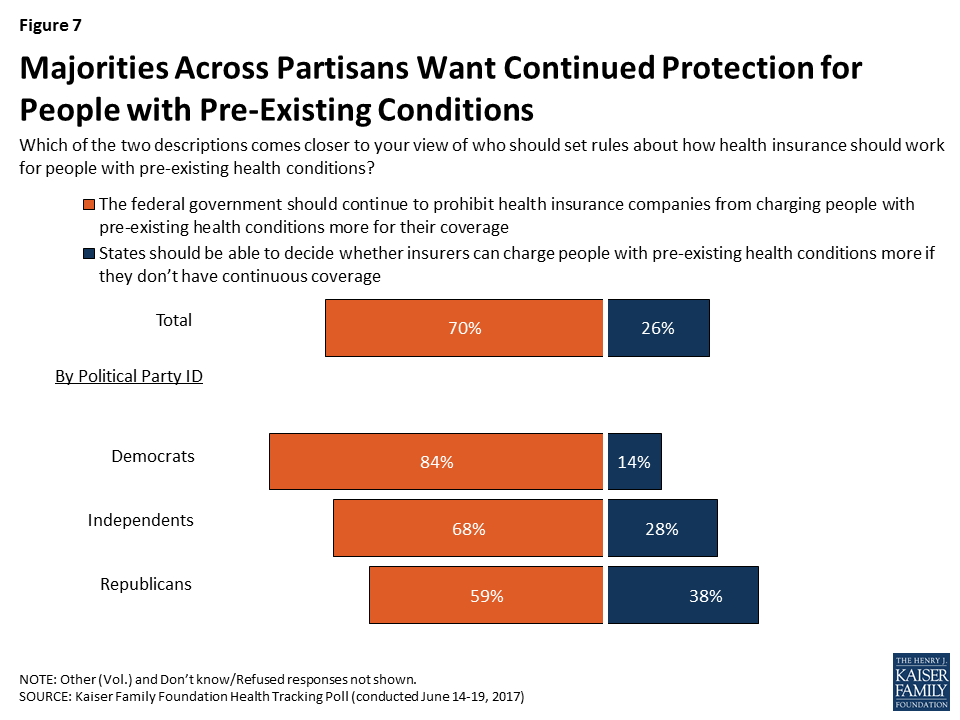 KFF conducted this poll in June 2017, asking the question based on two scenarios: whether the Federal government should prohibit health insurance companies from charging people with pre-existing health conditions more for coverage; or, whether States should be able to decide whether insurers can charge people with pre-existing conditions more if they don’t have continuous coverage.
KFF conducted this poll in June 2017, asking the question based on two scenarios: whether the Federal government should prohibit health insurance companies from charging people with pre-existing health conditions more for coverage; or, whether States should be able to decide whether insurers can charge people with pre-existing conditions more if they don’t have continuous coverage.
When it comes to pre-existing conditions, we are our brothers’ and sisters’ keepers, it seems Americans are saying.
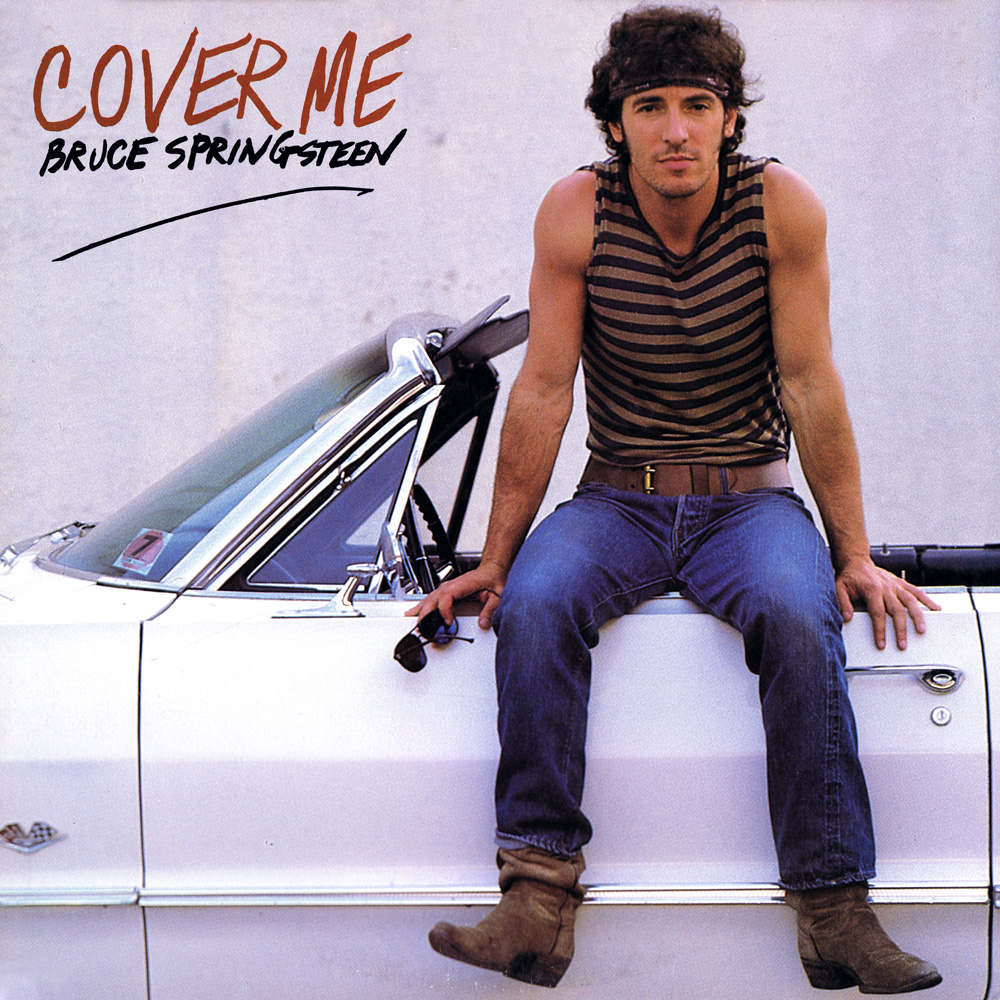 As Bruce Springsteen presciently sang in 1984 on the Born in the USA album, “Cover Me” — whichever town or state I live in, and whatever my political party ID.
As Bruce Springsteen presciently sang in 1984 on the Born in the USA album, “Cover Me” — whichever town or state I live in, and whatever my political party ID.
Springsteen’s lyrics preach it like a patient facing healthcare sticker shock, an out-of-control medical bill caused by out-of-network or costs-without-insurance:
The times are tough now, just getting tougher
This whole world is rough, it’s just getting rougher
Cover me, come on baby, cover me.
Whether I’m sick or not, just cover me, Americans insist.


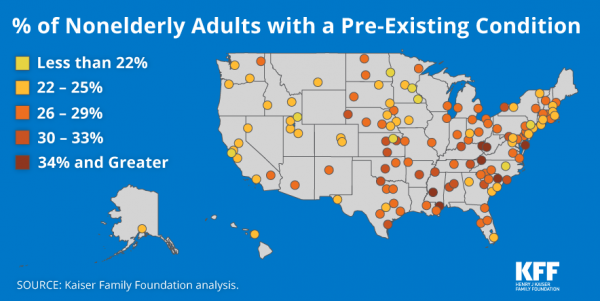


 Interviewed live on BNN Bloomberg (Canada) on the market for GLP-1 drugs for weight loss and their impact on both the health care system and consumer goods and services -- notably, food, nutrition, retail health, gyms, and other sectors.
Interviewed live on BNN Bloomberg (Canada) on the market for GLP-1 drugs for weight loss and their impact on both the health care system and consumer goods and services -- notably, food, nutrition, retail health, gyms, and other sectors. Thank you, Feedspot, for
Thank you, Feedspot, for  As you may know, I have been splitting work- and living-time between the U.S. and the E.U., most recently living in and working from Brussels. In the month of September 2024, I'll be splitting time between London and other parts of the U.K., and Italy where I'll be working with clients on consumer health, self-care and home care focused on food-as-medicine, digital health, business and scenario planning for the future...
As you may know, I have been splitting work- and living-time between the U.S. and the E.U., most recently living in and working from Brussels. In the month of September 2024, I'll be splitting time between London and other parts of the U.K., and Italy where I'll be working with clients on consumer health, self-care and home care focused on food-as-medicine, digital health, business and scenario planning for the future...